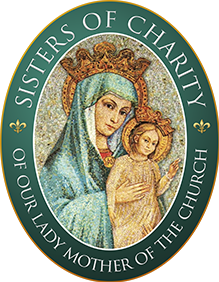This weekend the Woman of Samaria appears in our Gospel (John 4:5-42). If you have a copy of the Gospels, or can get it online, it is well worth reading this long passage slowly and prayerfully.
This woman belonged to a people who had been influenced by both Jewish and Gentile cult and practice since the seventh century B.C.. The Jews did not associate with the Samaritans precisely because they did not faithfully follow the teachings of the Mosaic law. But they (the Samaritans) were a people who awaited the coming of the Messiah as eagerly as the Jews did.
The questions the Samaritan woman asks of Jesus (and of her neighbors) are deep and deliberate. “Why are you asking me, a Samaritan and a woman, for a drink?” (verse 10). “Are you greater than our ancestor Jacob?” (verse 12). “Give me this water that I many never be thirsty” (v. 15). “Where should we worship God if we are to be pleasing to Him?” (verse 20). “Could he not be the Christ?” (v. 29). I can imagine that this woman, though she was living a sinful life with her fifth ‘husband’ and was therefore shunned by her own people, thought often and long about the coming of the day of the Lord.
She is sensitive to the gravity of her sin: she comes to the well when she expects none of the town’s women to be there. She knows that no man who is obviously a Jew would speak to a woman who is not his legal wife, and still less would he ask a favor of her, especially since she was not a practicing Jew. So, imagine how her heart and soul must have thrilled to find Jesus not only speaking to her but also indicating to her that he knows her sin, yet still speaks respectfully to her.
Think of this: Jesus seems to have found her just when she needed Him most. And when she was found, she could not keep to herself the gift of His love for her. In fact, she dares to run back into the town to cry out to all who would listen that she has found someone who might actually be the long awaited One–and she expects them to believe her in spite of, well, everything! We see, if we read this passage prayerfully, that she desperately wants Jesus to be her Messiah. She needs Him to be her Messiah. And He may be everyone else’s Messiah as well!
Lent is a quiet season. It’s a time for looking into ourselves to find the woundedness that threatens to set us apart from the community–and perhaps from God in certain ways. Lent hollows out a place within so that God can dwell there. Lent is a season to allow ourselves to be found by God, in whatever way we need to be found. In the Sacrament of Reconciliation or Penance, above all Sacraments, we encounter the Merciful love of God for us at a time when we need it most. Remember the story of the prodigal son? He had a forgiving father who ran to him when the faltering steps of the boy turned toward his homeland to fall at the knees of a father he believed in, despite his own sinfulness. One wonders about Jesus, Who would go to such lengths in parable and in fact to convince wounded souls that they are still welcome in the Kingdom if only they can trust the King enough to ask for His goodness and mercy.
Confession can be hard. Even when we have no serious sin but are aware of our failings, it can be hard. But no one should hesitate to come to the Father, to Jesus through the Holy Spirit of Love, to seek forgiveness, redemption, a new beginning.
This week I had supper with a child who had made his first confession that day. He was still wearing his ‘handsome clothes’ (carefully chosen for the wonderful moment of first reconciliation with Jesus). He was glowing, and counting the weeks until his First Communion. There was a kind of quiet about this usually bubbly little one that bespoke the remembrance of the grace he had received just a few hours earlier in his first personal encounter with the forgiving Jesus. I was reminded of my childhood confessions and all the confessions since when I recognize myself found by God who runs to meet me when He sees me coming to ask Him to pour His mercy into my heart.
The prodigal son, the Samaritan woman, this child, and the exquisite tenderness of our God all inspire me to call this season of Lent the Season of Being Found. Let us pray for each other. May our Lenten confession(s) find us enfolded in the Embrace of Mercy, right where we, like the Samaritan Woman, want to be.
God bless you.



 and then
and then